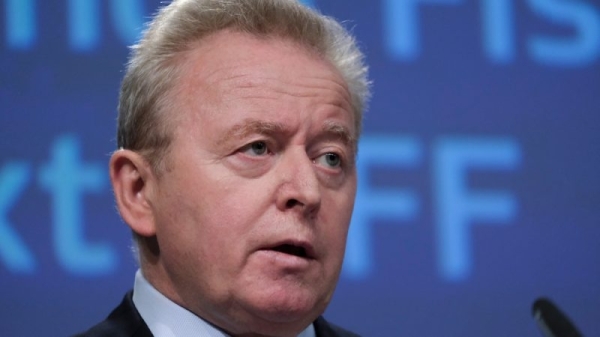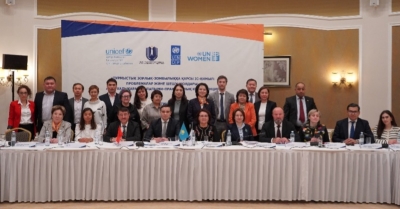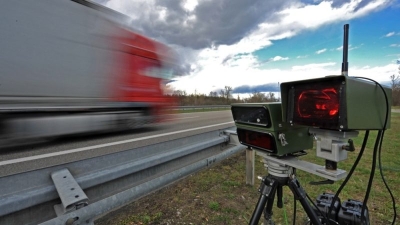Commission promises third aid package to EU farmers to cool down criticism

The EU executive is planning to put forward a new support package by June for farmers “affected by different types of crises” as a response to criticism received for the previous allocation of EU agricultural funds to Eastern European countries.
The EU Agriculture Commissioner Janusz Wojciechowski announced on Tuesday (30 May) that the remaining cash in the agricultural reserve will be made available to all member states.
The agricultural reserve – previously known as ‘crisis reserve’ – is a fund included in the Common Agricultural Policy (CAP) scheme that can be used to finance exceptional measures to counteract market disruptions affecting production or distribution.
This year, the EU has already used €200 million of the 450 million available – leaving 250 million in the bank until the end of the year.
“We are ready to distribute this amount for all member states affected by different types of crises,” the Commissioner said in a press conference after the monthly meeting with EU-27 agriculture ministers.
However, he added that “the methodology is not defined yet” and that the Commission is preparing a proposal “taking into account that some countries are having deeper crises than others”.
According to Wojciechowski, this third aid package should be decided and allocated “with urgent need” by June.
So far, the crisis reserve has been triggered on three occasions for 2023: €44 million went to farmers affected by an avian influenza outbreak in Italy and Poland; €56 million went to Poland, Romania, and Bulgaria due to market disruptions by imports from Ukraine.
Lastly, €100 million is expected to be distributed to the five ‘frontline’ countries neighbouring Ukraine.
The latter two disbursements were presented by the Commission in the form of ‘packages’ to support EU farmers after Russia’s invasion of Ukraine.

Grain imports: Brussels under fire for ‘non-transparent’ approach
European agriculture ministers strongly criticised how the EU executives dealt with countries like Poland after they had unilaterally issued temporary import bans on Ukrainian agricultural products such as grain.
Lack of transparency
This new third package comes as a response to mounting criticism over the executive’s decision to provide financial support worth €100 million to EU countries bordering Ukraine – including the Commissioner’s homeland Poland – on condition that they withdrew their unilateral decision to block agriculture imports coming from Ukraine.
In a letter sent to the European Commission on 12 May, agriculture ministers from 13 member states slammed the EU executive for adopting such measures “without consulting the member states”, which has raised “serious concerns because they lead to differentiated treatment within the internal market itself”.
According to sources inside the preparatory meeting ahead of the AGRIFISH council on 22 May, agriculture ministers stressed the need for the Commission’s decisions on triggering the reserve to be transparent and “based on clear data”. They also demanded a “‘flexible and tailored” approach to allocating support under a third aid package.
Speaking at the press conference after meeting with agriculture ministers on Tuesday (30 May), the Agriculture Commissioner appeared optimistic, stressing that “today’s discussion brought us a bit closer to being certain that the €100 million will not be put in question”.
“I hope I managed to convince the remaining member states that the criterium that we’ve chosen is a fair one,” he added.

Hungary has yet to lift ban on Ukraine agri imports, delaying EU aid
Hungary is yet to lift its unilateral ban on imports of agricultural goods from Ukraine despite giving assurances it would in exchange for a second financial aid package, thus jeopardising funding for four other EU frontline countries.
Southern coalition for climate compensation
Southern European countries also claimed their share of the agricultural reserve budget in light of the severe drought and floods sweeping their regions.
In a point raised by the Portuguese delegation, with the support of the Spanish, Italian, and French, they brought to the Commission’s attention the impact of “adverse climate conditions” particularly on livestock farming – due to the absence of pasture – as well as fruit and vegetable production.
For this reason, the delegations proposed using the agricultural reserve “to be considered”.
Additionally, they also urged the Commission to increase the level of advance payment rates under the Common Agricultural Policy (CAP) to 70% for direct payments and 85% for rural development aid.
On Wednesday, the Spanish Agriculture Minister and upcoming chair of the agriculture council, Luis Planas, told the media that he considers as positive the results of Tuesday’s meeting as “an important step forward in the activation of funds from the agricultural reserve”.
He also said that the demands raised by the Spanish and Portuguese delegations had the support of the “absolute majority’ of ministers”.
But despite welcoming the Commission’s commitment, Planas also slammed the lack of a stronger support mechanism at the EU level to cope with “the concurrency of different situations”.
“We have asked the Commission to look beyond the agricultural reserve and to consider whether it is necessary to reform it, both in its endowment and in the mechanisms to trigger its activation,” he said.

Agriculture reserve: what is it, what does it do
Watch this video in Spanish or in Romanian.
The agricultural reserve – previously the crisis reserve – was triggered last year for the first time ever to support EU farmers after the invasion of Ukraine …
Read more with EURACTIV




